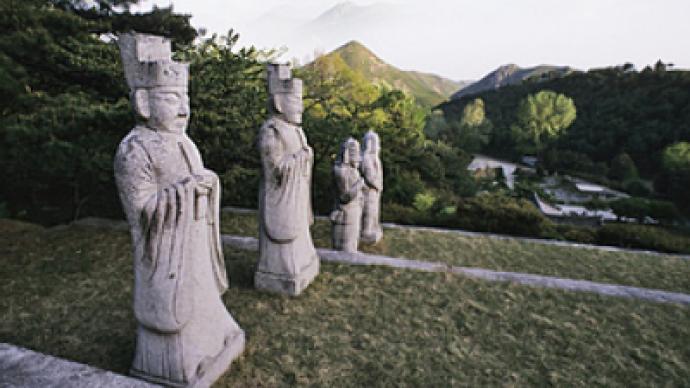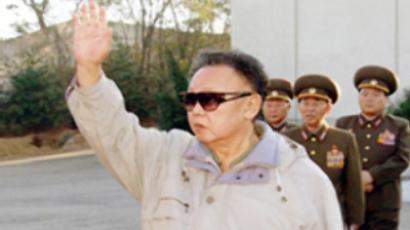Forgotten hostages of North Korea

A decades-old tale of intrigue and international terrorism will be revisited this month when a former North Korean spy meets family members of a Japanese woman who was abducted by the East Asian state in 1978.
Yaeko Taguchi was just 22-years-old when she disappeared from her Japanese home in June, 1977. North Korean officials had previously admitted that they were responsible for her abduction but later claimed that she had died in 1986. Now, former North Korean agent Kim Hyun-hui will meet the family of Taguchi after she claimed the missing woman taught her Japanese for two years as part of her spy training.
Hyun-hui is no stranger to controversy; she was one of two terrorists who blew up a South Korean airplane in 1987, killing all 115 on board. Originally sentenced to death in March 1989 for her role in the bombing, she was later pardoned by South Korea's president, Roh-Tae-woo.
Now, the former terrorist turned ordinary housewife claims that the story of Taguchi’s death is ‘probably a lie.’ It gives some hope to the family of not only Yaeko Taguchi but to the many others who believe their missing loved ones were also kidnapped by North Korea during their government-approved abduction campaign of 1977-1983.
Campaign of Abduction
Although 16 people are officially recognised by the Japanese government as abduction victims of North Korea, Pyongyang has only ever officially admitted kidnapping 13 Japanese citizens. Of the 13 that North Korea admits to kidnapping, five were returned to Japan – alive and well – in 2002. North Korea claim the remaining eight died in captivity at various stages between 1979 and 1994. This is a claim that is vehemently rebuked by the organisation that represents the families of those victims.
Teruaki Masumoto is the General Secretary of the Association of the Families of Victims Kidnapped by North Korea (AFVKN). He is adamant that the North Koreans are still not releasing the whole truth about the fates of those abducted: “There is no evidence to underwrite the North Korean claim about the deaths of abductees. We are determined to keep reiterating this point to the general public. We also are trying to turn the public’s attention to the evilness of the North Korean regime, which features brutal oppression pressed upon ordinary North Koreans. We are urging the Japanese government to apply additional sanctions against the North.”
‘Tip of the iceberg’
Yoichi Shimada is a Professor of International Politics at Fukui Prefectural University in Japan. He maintains that the official figures for the number of people kidnapped are too low: “The official figure is just the tip of the ice-berg,” he says. “Along with violent kidnap, a number of people seem to have been lured to North Korea and then held. Although it's hard to be certain, I estimate that over one hundred Japanese have been abducted.”
The systematic kidnapping of citizens was a bizarre tactic of North Korea, and the abduction issue has been a sticking point in normalising Japan and North Korea relations for years. Japan has continually demanded full admissions by the government in Pyongyang and the release of all Japanese living nationals in the North.
Yoshi Shimada sheds some light on what he believes were the motives behind the abductions: “North Korea may have abducted these people for a number of reasons. It could be to eliminate witnesses to the activities of their agents; to steal victims’ identities; brainwash them to become secret agents; or use them as spouses for residents in North Korea.”
In Yaeko Taguichi’s case, it appears she was used to teach North Korean spies the Japanese language. Hyun-hui claims that during the two years she was taught by the abductees they formed a relationship “that transcended nationalities.” Now she wants to tell her family not to lose hope.
Hillary draws attention to hostage plight
Another woman drawing attention to the plight of the abductees is Hillary Clinton. As part of her first overseas trip as new Secretary of State last month she met the Taguichi family, as well as others who have suffered from the abduction regime.
Clinton said she wanted to help solve the riddle of the missing Japanese citizens at the same time as extending an olive branch to the North Korean government.
One of the people Clinton met was Sakie Yokota. Sakie is the mother of Megumi Yakota, who was just 13 when she was abducted in 1977. The North Korean government claims that she committed suicide in 1994. Then, in 2004, North Korean authorities returned two sets of human remains to Japan, one of which they claimed to be Megumi. DNA tests proved otherwise, leaving Sakie with more questions than answers in the quest to find out what happened to her daughter.
Sakie said she gave Clinton a copy of her book about her daughter during their face-to-face meeting: “She is also a mother, and she said that any mother would fight to the end if such a thing happened to her,” she said.
AFVKN secretary Masumoto also met Clinton and, while he welcomed America’s desire to meet the families of victims, he was quick to point out the damage done by the last administration: “We handed her (Clinton) a letter in Tokyo that said we hoped that she recognises how badly the Bush administration’s unprincipled concessions to North Korea damaged the US image in Japan and we hope that she mounts pressure against the North.”
“We understand that she will be reviewing this situation in the near future and we asked that she seriously consider relisting North Korea as a state sponsor of terrorism,” he continued.
Although Hillary Clinton has also drawn attention to the plight of the families, according to Masumoto she was non-committal on the issue of North Korea's terrorist status, stating only that she “would think about it.”
Dead or alive?
It is hoped that some of the mystery surrounding these victims will be lifted when Kim Hyun-hui meets the Taguichi family. Any glimmer of hope will be a boost for the other families involved. Indeed, the thought that their loved ones could still be alive is what has kept them going this long.
Masumoto explains the hope that the families maintain: “We believe in family reunion in the near future. But time is running short for elderly fathers and mothers. We are concerned about health of our loved ones trapped in the North because medical service there is indescribably miserable.”
The meeting of the former spy with the victims of her former masters is just another stage on the long and fraught road these Japanese families are on. Regardless of which version of the events is true, the fact remains that not much is known about the goings-on within North Korea itself, before you even consider the fates of those kidnapped more than 30 years ago.
The important thing is this meeting has put the plight of these forgotten victims back in the limelight. What little may come out of it is irrelevant; it’s all the abductees and their families have left.
As Masumoto says: “Our loved ones in North Korea are hanging on, believing in reunion. We are trying to reach and encourage them through such things as radio and flyers. We don’t lose hope.”
Ciaran Walsh for RT













